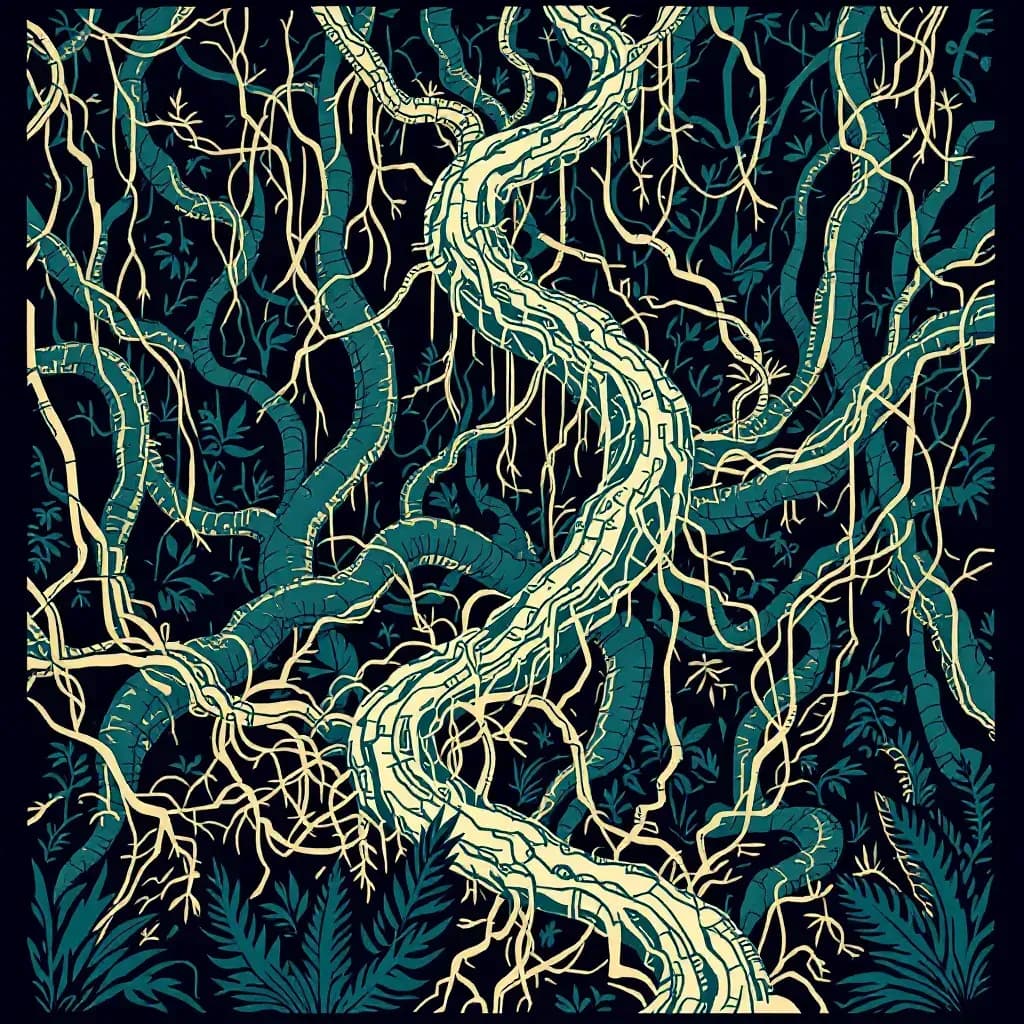
Jungle
How lawless environments – from wastelands to the dark web – enable crime and test investigators
Discover 'the jungle' in true crime: From isolated wastelands to the dark web – places that breed brutal crime and test the limits of investigation.
How lawless environments – from wastelands to the dark web – enable crime and test investigators
What is 'the jungle' in true crime – a gift to criminals?
In the context of true crime, the term 'the jungle' encompasses more than just a dense, tropical rainforest. It denotes any environment that is difficult to access, often lawless or unmanageable, which actively enables and effectively conceals criminal acts. These 'jungles' – whether physical, like impassable forest areas and isolated wastelands that can serve as crime scenes for serious offenses, or more metaphorical, like complex urban zones or the dark corners of the internet, including parts of the dark web – pose a significant challenge to investigations. They offer perpetrators a unique combination of cover, isolation, and the opportunity to operate outside society's normal controls, as the very nature of the environment hinders surveillance and official intervention.
Drug trafficking, violence: Crime in 'the jungle'
In these physical or symbolic wildernesses, a wide range of serious crimes can occur, including large-scale drug production, brutal human trafficking, organized fraud, and the systematic disposal of evidence. Violent confrontations, such as shootings, can also escalate in these unregulated zones. In physical 'jungles,' like rugged natural areas, this can also include forms of environmental crime, where natural resources are illegally exploited or where pollution occurs with impunity. Often, these acts are carried out with a brutality and systematic approach fueled by isolation and the lack of risk of discovery. Perpetrators actively exploit the complexity of the terrain or digital structure to establish covert operations, evade capture, and make it extremely difficult for victims to escape or for authorities to gather crucial evidence. The widespread lack of transparency and the often informal, sometimes violent, power structures within a 'jungle' create an environment where the rule of law has a severely limited reach.
'The jungle' as accomplice: Concept crucial for probes
Understanding 'the jungle' as a distinct criminogenic environment is therefore essential within true crime. This understanding highlights how the surroundings do not merely form a passive backdrop for a crime but often act as an active accomplice that facilitates and protects criminal activity. The concept underscores the unique dynamics and significant investigative challenges associated with solving crimes and prosecuting offenders in such hidden, chaotic, or hard-to-reach worlds, constantly testing the limits of modern investigative methods and capabilities.
Explore cases of brutal human trafficking in isolated zones and complex fraud schemes in the digital jungle. Read concrete examples of the jungle in action. Explore our in-depth cases below.
